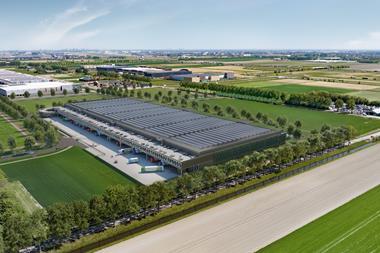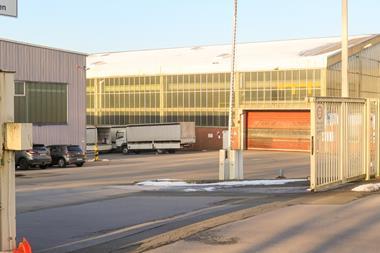GERMANY - Union Investment Real Estate AG has welcomed proposals for regulation changes regarding German open-ended funds (GEOFs) and aims to take advantage of repricing to invest in traditionally core markets.
The German Investment and Management Association (BVI) agreed a series of proposals earlier this month to improve liquidity management of GOEFs, which included the implementation of a compulsory 12-month notice period for new institutional investors wanting to invest in retail funds open both to retail and institutional investors.
It also proposed allowing investment management companies to demand 90 days notice or longer from investors wanting to exit the funds if redemptions amount to 5% of the funds assets within 30 days.
Karl-Joseph Hermanns-Engel, head of Union Investment's international business, said: "This creates another kind of management arrangement period which allows fund managers to reorganise the liquidity base in the fund. I really think this is a very important change in the rules. We believe that it will create a stabilised future for the products."
GOEFs are currently valued at approximately €84.3bn but only two closed open-ended funds have been reopened successfully since the crisis hit and managers were forced to restrict access to redemptions, while the rest remain closed until the end of November 2009.
The German government is expected to reach a decision regarding the proposals by the end of 2009 or beginning of 2010.
That said, Hermanns-Engel is confident Germany will continue to attract investors from abroad, as its property market has been less affected by the financial crisis than countries like the UK or Spain.
The company's investment climate survey, which questioned around 100 property firms in Germany, France and the UK and was completed in December 2008, found 58% of respondents expect foreign investors to show the same, or more, interest in Germany this year as in 2008.
Germany and France recorded index values of 58.8 points and 57.1 points, well above those of the UK, which were 50.4 points.
Dr. Reinhard Kutscher, chairman of the management board at Union Investment Real Estate, said: "The fall in the index reflects the sharp downturn in the major European economies. Having said that, German and French investors clearly have far greater confidence in the mechanisms underpinning their markets than their British counterparts, who have been harder hit by the turmoil."
Union Investment is targeting an investment volume of €1.5-2bn in 2009, only slightly down from the €2.2bn levels recorded the year before.
"This year we will continue on this target due to the fact that there is still a very nice and acceptable of liquidity in our funds and we are expecting impressive inflows in 2009, roughly €1bn," Hermanns-Engel told IPE Real Estate.
Since 2005, the Hamburg-based company has been concentrating on investing in emerging markets such as Hungary, Czech Republic, Mexico, Chile, Korea and Japan, however it now plans to focus on core areas such as Western Europe, the US and Australia.
Union Investment will focus in particular on London and the UK, according to Hermanns-Engel, where it already has eight investments.
"During recent years we have seen an overheating of the markets. We have seen impressive yield compression and we have been more or less unable to accept the prices we have seen in the West End and the City. Today, most of the active investors in core investments are seriously considering investing in the UK because of the British pound situation and yield decompressions," he said.
The firm plans to invest primarily in offices but also in the retail, hotel and logistics sectors.
Union Investment currently has €14.5bn of assets under management and approximately 200 properties and projects in Germany, Europe, the Americas and Asia.
If you have any comments you would like to add to this or any other story, contact Poppy Sketchley on + 44 (0)20 7261 4629 or email poppy.sketchley@ipe.com












